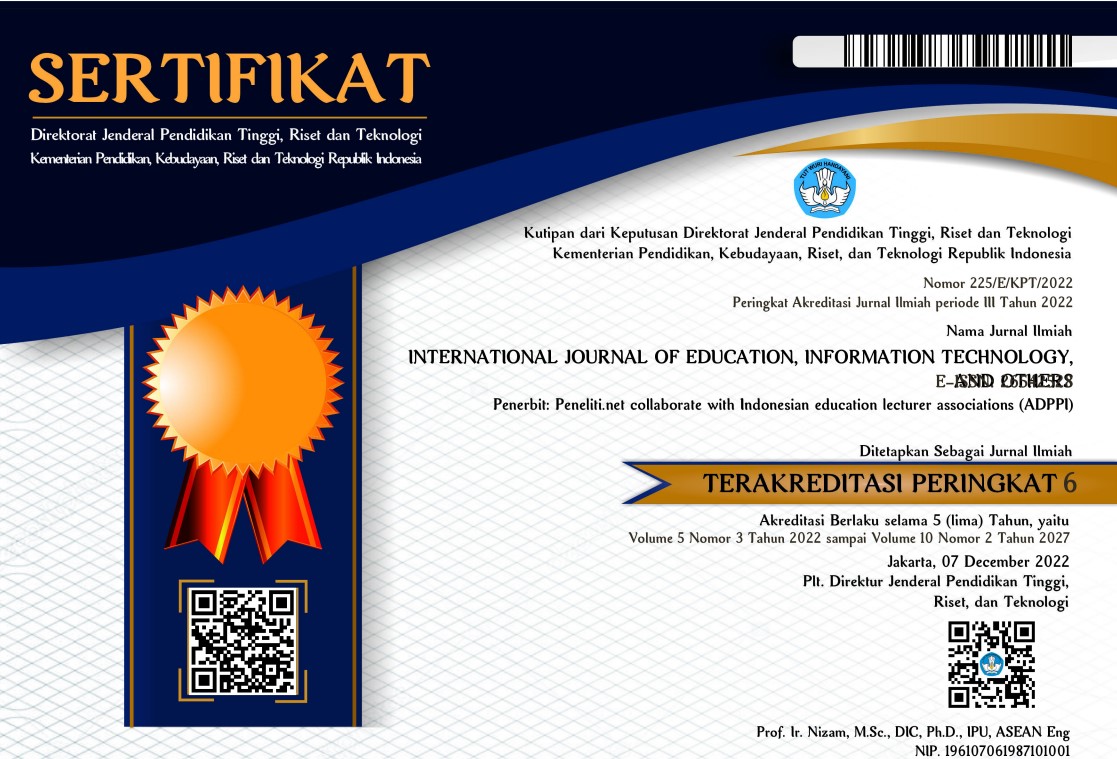The Effect of Guided Inquiry Learning Model Accompanied by Multirepresentation-Based LKPD on Student Critical Thinking Skills In Junior High School Science Learning
Abstract
Science learning encourages students to learn concepts scientifically, this certainly trains students' thinking processes. Science learning becomes uninteresting for students because they face difficulties in understanding science concepts. The selection of learning models that are still teacher-orientated causes students to be less critical in addressing problems because students are accustomed to receiving material passively. The purpose of this research is to examine the effect of students' critical thinking skills using guided inquiry learning model accompanied by multirepresentation-based LKPD. This type of research is a quasi-experiment with a non-equivalent (pre-test and post-test) control-group research design. This research was conducted at SMPN 1 Tempeh which consisted of 9 classes then 2 classes were selected as samples. Methods used for data collection were pretest and posttest, observation, interview and documentation. Data were analysed using normality test, homogeneity test, independent sample t-test and N-gain test. The results showed that there was an effect of guided inquiry learning model accompanied by multirepresentation-based LKPD on critical thinking skills of junior high school students.
Copyright (c) 2024 International Journal of Education, Information Technology, and Others

This work is licensed under a Creative Commons Attribution-ShareAlike 4.0 International License.



